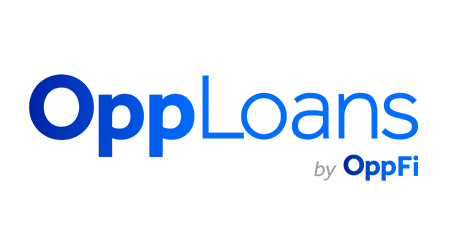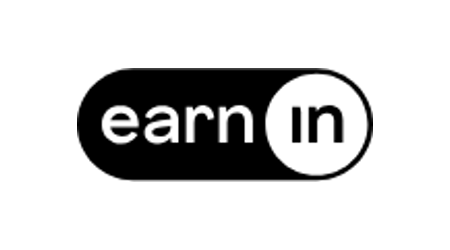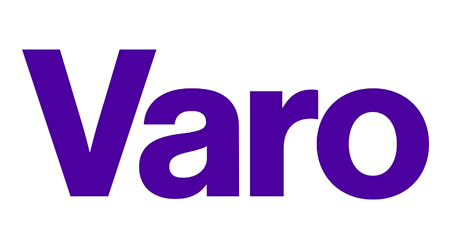
- Borrow up to $5,000
- Get cash as soon as same business day
- Easy application
- Quick approval
- Not available in: CO, CT, GA, IA, MD, MA, NY, SD, VT, WV.



High-interest payday loans are prohibited in Maryland, and rates on short-term loans are restricted based on the loan’s size. If an individual or business is lending $25,000 or less, it’s illegal for them to charge more than the interest rate allowed by law — subject to certain (unspecified) exceptions, according to the Maryland Department of Labor’s Office of Financial Regulation.
Here’s a breakdown of the maximum interest rate a small loan provider can charge:
| Loan amount | Max interest per month | Max interest per year |
|---|---|---|
| First $1,000 of $2,000 loan | 2.75% | 33% |
| Next $1,000 of $2,000 loan | 2% | 24% |
| Loans over $2,000 | 2% | 24% |
However, payday lenders often find ways around state regulations. A simple internet search for “payday loans in Maryland” reveals dozens of lenders that claim to offer payday loans in Maryland. Some may or may not be legit lenders that follow state laws. For that reason, Finder urges borrowers to make sure they understand the rates and fees they’re paying before taking out any type of loan.
If you believe a lender is violating Maryland lending laws, you can file a complaint with the Office of Financial Regulation.
If you need a loan, here are some better, less expensive options than payday loans.
If you need quick cash between paychecks, a cash advance app might be a good option. Loan amounts are small — typically between about $20 to $500 — and most providers don’t charge interest or late fees, making them less expensive than payday loans. But they’re not free.
Many apps charge monthly subscription fees that may cost up to $15, although some apps don’t require a membership to qualify. And, while transfers are usually free, they take up to a few days to go through. If you need cash now, you’ll have to pay a fast transfer fee anywhere from around $2 to $20.
Cash advance apps are also a solid choice if you have poor credit, because they don’t require credit checks. But you need to link your bank account with the app, and most providers require you to get paid by direct deposit. Plus, advance amounts usually start small for new users, although they generally increase the more you use the app.
If you need to borrow a larger amount than payday lenders offer — or want a longer term to pay it back — a personal loan might be the way to go. Personal loans can reach as high as $50,000, and a few lenders, like Lightstream and SoFi®, offer as much as $100,000.
You can get personal loans from banks, credit unions and online lenders, and you may want to check with your current bank or credit union first. These loans can typically be used for almost any purpose, such as consolidating debt, covering emergency expenses or making home improvements. Most lenders require a credit score of at least 600 or more to qualify, but there are also loan options for borrowers with bad credit.
Some federal credit unions offer payday alternative loans, which are specifically designed to give low-income borrowers access to more affordable credit than payday loans, title loans and other types of expensive short-term loans. Loan amounts range from $200 to $1,000, with terms from one to six months and interest rates capped at 28%.
But you need to be a member for at least one month to qualify for a PAL, so it isn’t a good option in an emergency. However, some credit unions may offer the less common PALs II loans, which go up to $2,000 and have terms as long as 12 months. You may be eligible for a PALs II as soon as you become a member.
If you’re in a bad financial situation, your employer may be willing to give you an advance on your next paycheck. That way, you can access money now — that you’ve already earned — instead of waiting for payday. This could be an informal situation where your boss gives you cash ahead of time, or some companies offer loans or cash advances as an employee benefit.
We currently don't have that product, but here are others to consider:
How we picked theseThe Finder Score crunches 3+ types of short-term loans across 65+ lenders. It takes into account the product's interest rate, fees and features, as well as the type of loan eg investor, variable, fixed rate - this gives you a simple score out of 10.
To provide a Score, we compare like-for-like loans. So if you're comparing the best short-term loans for all credit types, you can see how each short-term loan stacks up against other short-term loans with the same borrower type, rate type and repayment type.
Maryland has a number of assistance programs you might qualify for if you’re struggling with your finances.
You can explore more resources by visiting the Maryland Department of Human Services.
Maryland doesn’t technically ban small-dollar loans, but it limits the interest a lender can charge. For a personal loan over $2,000, the maximum interest rate is 2% per month or 24% per year. However, several factors impact the interest you pay, like your credit score, the amount you borrow, the lender and the loan term.
If you go with an online lender, you can expect to pay between 5.99% and 35.99%, with the lowest rates going to borrowers with good to excellent credit. You may also have to pay additional fees, such as application or origination fees. Like interest rates, these vary by lender. Check your loan agreement to learn the full details of what you might have to pay before you borrow.
While you may not be able to take out a payday loan in Maryland, there are other options to help you make ends meet. And if you’re still looking for a short-term loan, there are some installment loan options you may want to consider if you’re facing an emergency expense.
If possible, borrowing from a friend or family member is your best alternative to getting a pricey payday loan. If that isn’t an option and you only need a small loan, you may want to try a cash advance app. If you need more, a personal loan might be a better solution.
If you exhausted all your options, you could try a pawn shop. If you have something of value, you can either sell it outright or take out a loan. Pawn brokers typically loan you about 25% to 60% of your item’s value. Pawn shop loans aren’t cheap, but there’s no credit check, and they’re easy to get.
A review of Honest Loans, a lead generation service that can connect you with loan amounts from $200 to $50,000.
Compare lenders that offer $800 loans, including payday and installment loans, personal loans and cash advance apps.
Lenders that offer $700 loans, how much they cost, requirements needed to qualify and what to watch for.
How to get a $600 loan, including eligibility requirements and where to find them.
From pay advance apps to payday loans, you have a few options to choose from.
Compare eight lenders that offer loans under $300.
Find out where to apply for a short-term loan if you have bad credit — and learn what red flags to stay away from.
Here’s how to get a small $500 loan for cash until payday.
Borrowing a $100 can be a quick and painless process. This article covers exactly what you need to know when you need a little cash between paydays.
Five lenders that offer debit card loans and fast funding.
I need to obtain a loan to retain a lawyer’s as soon as possible. What options do I have in the state of MD?
Hi Lisa,
Thank you for getting in touch with finder.
You’re currently at the right page. Kindly compare your options on the comparison table on this page. You may choose the lender that would suit your needs most by checking the max loan, requirements and turnaround time columns of the table. Once you’ve decided, you may click on the green Go to site button to start your online loan application or learn more about the lender.
Please make sure that you’ve read the relevant T&Cs or PDS of the loan products before making a decision and consider whether the product is right for you.
I hope this helps.
Thank you and have a wonderful day!
Cheers,
Jeni
I live in MD. So what type of small loan could I get here next day???
Hi Linda,
Thanks for getting in touch!
You can compare quick short-term loans if you need to get your money as soon as the next business day.
Please note that you may have to pay higher interest rates with short-term loans so remember to review the terms and conditions before making a decision on whether it is right for you.
Hope this helps!
Best,
Nikki
I took out a payday loan and i got injured on the job and im not able to pay it back right now. Can they take my taxes state or federal if i dont pay back by tax time
Hi Brittaney,
Thanks for reaching out and I’m sorry to hear about your situation. Hope you are recovering well. It is not your fault you got into an accident so its best to communicate with your lender and see what the next steps are in paying off your loan. Hope this was helpful. Don’t hesitate to message us back if you have more questions.
Best,
Nikki
I have 2 payday loans. I just found out that pay day loans are illegal in md. If I stop paying will they come after me.
Hi Tracy,
Thanks for getting in touch with finder. I hope all is well with you. :)
First thing you need to check is to ensure that you are not getting charged with an illegally high-interest rate. In Maryland, the maximum interest a small loan provider can charge is 2.75% per month or 33% per year. If you have determined that the loan you applied for is really an illegal payday loan, then you need to report them to the proper authority.
Moreover, you would need to contact your state’s consumer protection office to find out what you’re required to pay back. Generally, you might be required by law to only pay back the principal, but depending on the specific terms of the loan and whether it’s technically an actual payday loan or not, you may be required to pay back the interest and fees as well.
I hope this helps. Should you have further questions, please don’t hesitate to reach us out again.
Have a wonderful day!
Cheers,
Joshua
I live in MD, I have an account with a payday loan company. I have been using their service for several years. Apparently their loans are illegal in MD. Is there anything I can do to recoup some money? Feeling ripped off.
Hi Jeff,
Thanks for leaving a comment on finder.
The first thing you can do is to contact the lender to confirm whether they issue refunds and check the process on how you could do this. In case that they won’t give you a refund and you think it’s best to file a complaint against them after you’ve reconsidered the possibilities, you may get in touch with Maryland Commissioner of Financial Regulation directly instead.
Hope this has helped.
Cheers,
Joel